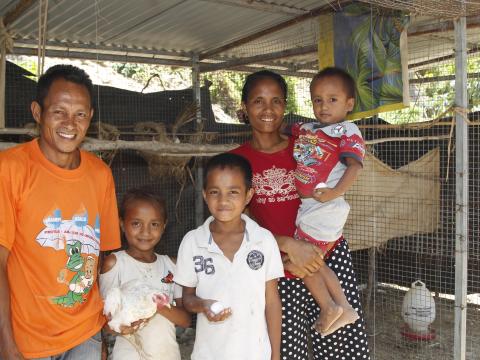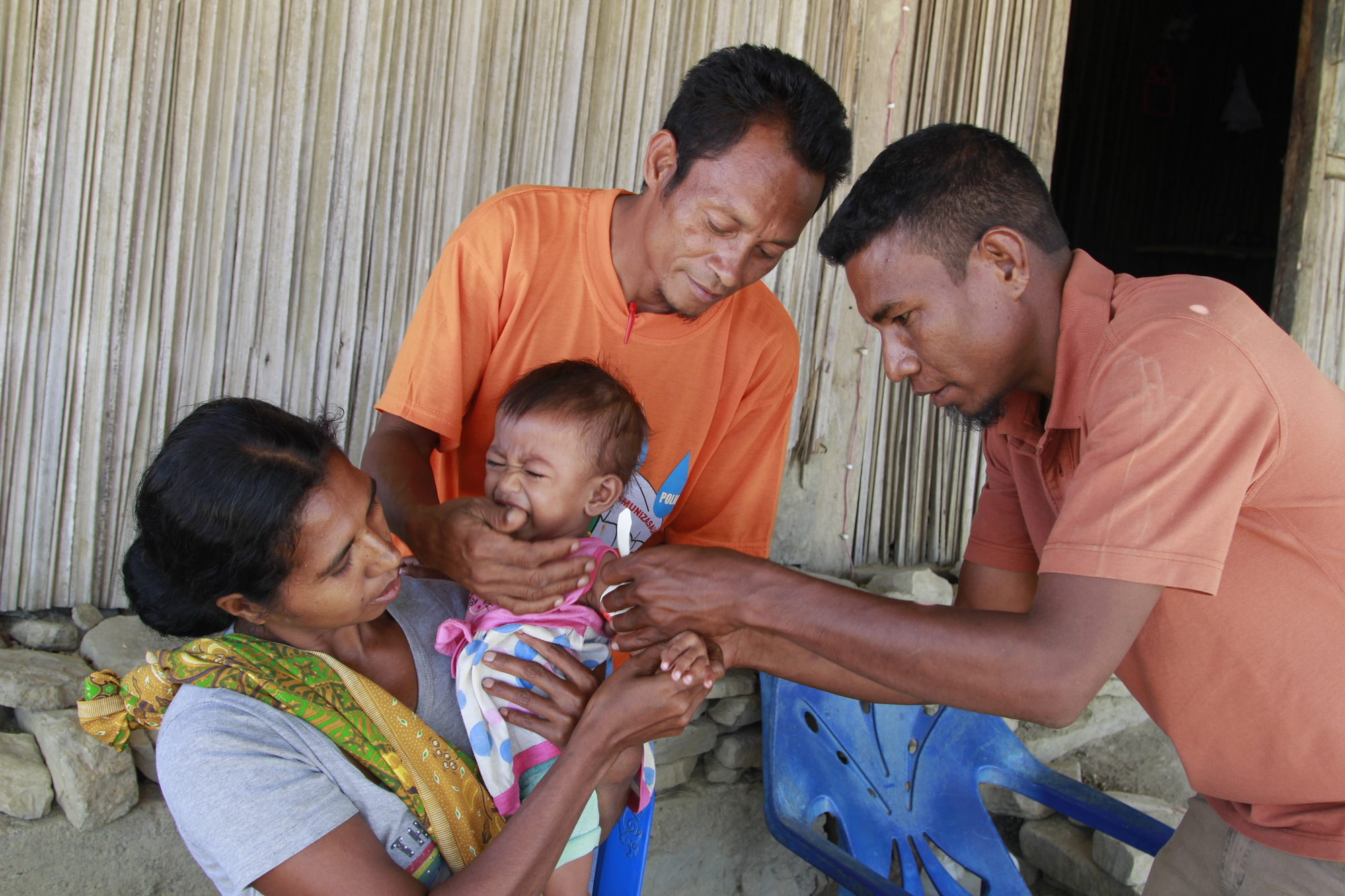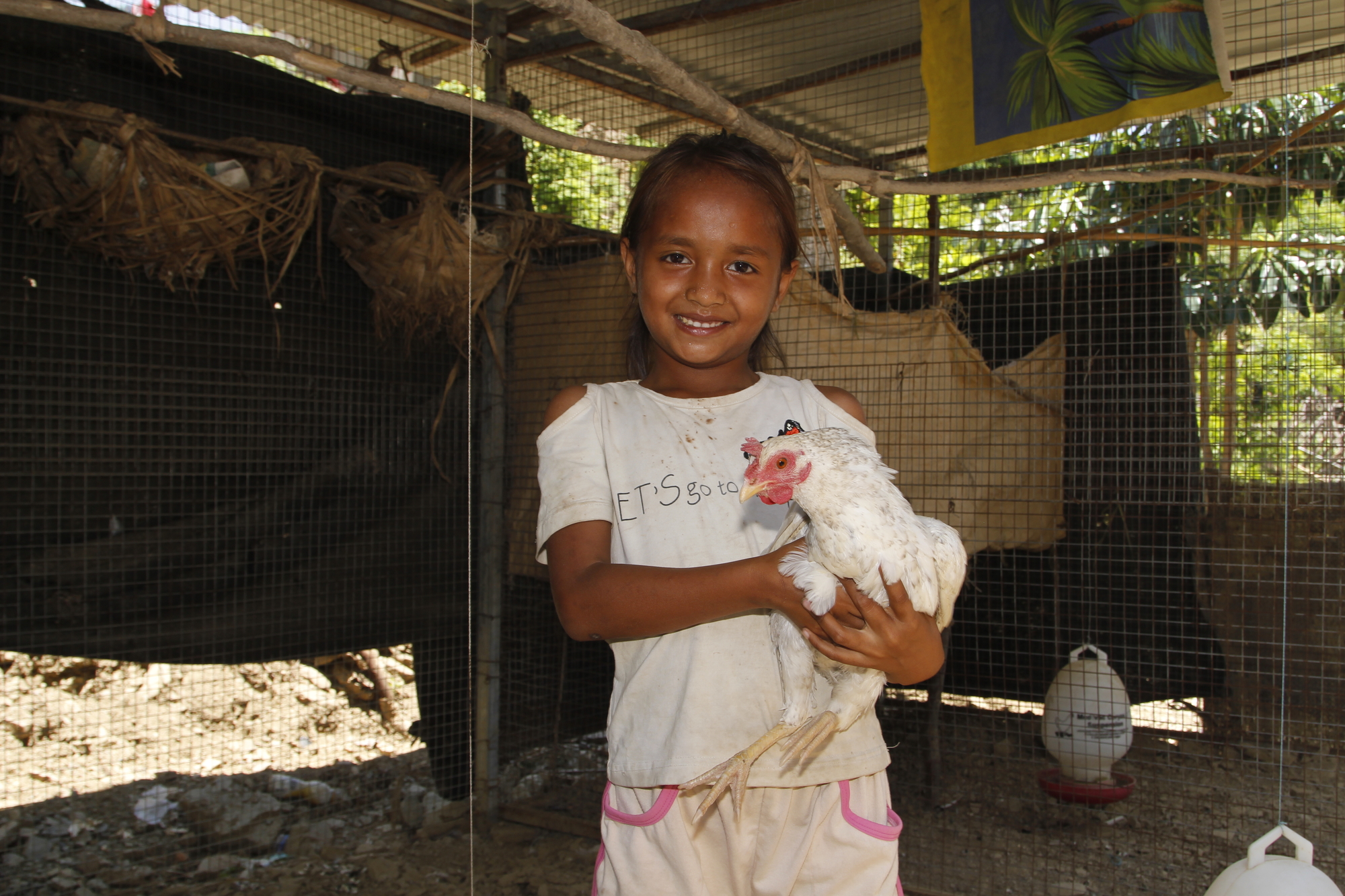Alarico on the frontline of healthcare in his community

For many families in rural Timor-Leste, the closest health facility is a two hour walk away – sometimes more. When children get sick, parents often have to rely on the health volunteer that lives in their community.
Community health volunteers (or Promotor Saude Familiar) are on the frontline of healthcare in Timor-Leste. A government initiative, their role is to promote health information and connect their communities with the formal health system.
Alarico, a 36-year-old father of three from Covalima, is one of them.
He is supported by World Vision’s Better Food Better Health project to improve health and nutrition knowledge and practices in his community. He’s one of the 120 community health volunteers mobilised by the project across the country.
Alarico leads a parents club, established by World Vision, where he promotes nutritious superfoods, (like egg, moringa and orange sweet potato), shares recipes, and runs cooking demonstrations so mums and dads can prepare healthy meals for their children.
Through the project, Alarico receives training and mentoring to counsel and share vital health, hygiene and nutrition messages with parents of children under five. He is also supported to make home visits to identify malnourished children, refer them to a health facility, and monitor their recovery.
“I visit each household once a week for direct observation of each family’s health condition, including identifying children who have malnutrition,” said Alarico.
This community-level healthcare is helping to save lives.
In September 2018, Alarico identified nine-month-old Azelia as severely malnourished. Weighing three kilograms less than the norm for her age, her weight continued to decrease due to diarrhoea.
“World Vision staff and I identified Azelia with a Mid-Upper Arm Circumference of 10.8cm. This indicated that she has serious malnutrition,” Alarico said. “So we directly contacted the Nutrition Coordinator at the Zumalai Health Centre for the immediate distribution of additional foods such as Plumpy’Nut [a peanut-based paste used to treat malnutrition].”

Today, Azelia is recovering well, thanks to the Plumpy’Nut and Alarico’s weekly monitoring. “Azelia’s health continues to improve because I give advice to her parents to continuously provide her with porridge mixed with moringa leaves and eggs,” he said.
Improving nutrition through egg production
Undernutrition is a critical health issue in Timor-Leste. Half of all Timorese children under five have stunted growth due to poor nutrition and food insecurity. This can have devastating effects on their long-term development.
The Better Food Better Health project is addressing this problem by supporting rural households to grow, eat and sell nutritious superfoods. Community health volunteers like Alarico are vital in promoting nutrition information and behaviour change.
To help the health volunteers remain motivated and capable in their work, the project provides each with a chicken incentive package, including one rooster, 10 hens, chicken coop construction materials and training in chicken management and local egg production. This has provided Alarico and his community with a good source of protein-rich eggs and income.
Alarico’s wife Alzira has also learned how to raise chickens, and now prepares meals using egg and other nutritious superfoods for their children, Bruno, aged 13, Fersilia, aged eight, and Antonio, aged four.
“In the past, my children didn’t eat moringa, and rarely ate eggs. But now, my family has changed the way we give food to our children. For example, I cook a porridge mixed with moringa and eggs,” she said.
Their daughter Fersilia is happy with these tasty new meals. “I like to eat eggs,” she said.

By improving the nutrition of his own children, as well as other children in his village, Alarico is leading the way to ensure the long-term health of his community.
World Vision’s Better Food Better Health project is supported by the Australian Government through the Australian NGO Cooperation Program (ANCP).